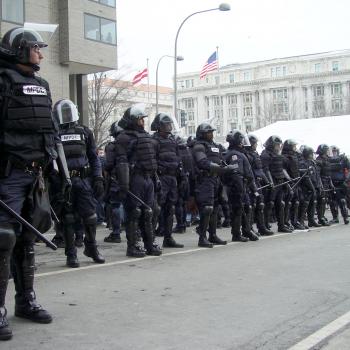This week in his school library, my son Matthew happened to check out a book called The Grasshopper’s Song by Nikki Giovanni, a famous poet who teaches at Virginia Tech. At first, when I saw the book was 50 pages long, I told him we needed to read another one but then I started flipping through it and I got interested. It’s a subversive retelling of the famous Aesop’s fable about the grasshopper and the ants.
In Aesop’s story, the grasshopper plays his fiddle all summer long while the ants are working hard and storing up their food for the winter. Then when the winter comes, the grasshopper has no place to go and no food stored up, so he goes to the ants for help and they let him die in the snow for being “lazy” over the summer (or they rescue him and nurse him back to health, in the Disney version). The moral of the story is “Those who fritter summer away will have to pay winter’s price.” The unspoken message is that laziness and art are the same thing. Aesop’s universe is entirely utilitarian; there is no room for fiddle-playing as a legitimate life vocation, nor is there room for grace or sharing resources with other insects who haven’t earned their keep.
Here’s where Nikki Giovanni comes in. In her retelling of the story, Jimmy Grasshopper files a lawsuit against the Ants for refusing to compensate him for the music that he provided them throughout the summer when he needed food and shelter over the winter (despite the fact that they never signed a contract for his services, which is not a deterrent to legal action in Giovanni’s fairy tale world). Jimmy Grasshopper’s lawyer Henry Robin explains:
Jimmy Grasshopper and his family have sung for years, helping the ants by providing the rhythm to which they smoothly harvest their cops. All summer, when it is warm and food and water are plentiful, the Ants welcome the Grasshoppers into their camps. The Grasshoppers make beautiful music… It has been proven that those who sing, those who make music, play a key role in the survival of all life. 24
Osceola Slug, the attorney for Nestor and Abigail Ant, retorts the following in her opening argument:
All summer, Mr. Grasshopper wrote songs and did funny dances. Of course my clients enjoyed it. Who doesn’t enjoy a clown? But my clients repeatedly asked Mr. Grasshopper, ‘Shouldn’t you be storing up food for the winter?’… Each time Mr. Grasshopper assured my clients that he was content with his merrymaking. ‘Winter will take care of itself,’ he said. Now he finds himself with nothing. Is this the responsibility of Nestor and Abigail Ant? 27
So the trial ensues and Jimmy Grasshopper is put on the witness stand. When Lori Wren asks him why he thinks he deserves “respect” (which is what he’s suing for), he responds:
Am I not worthy of my bread? Does not the work of my heart and soul earn respect? I am an artist. Is there no place for beauty, no solace for the ear, no hope for the heart? Must everything be in the marketplace? Doesn’t the marketplace itself need and deserve beautification?
On cross-examination, the opposing attorney Amy Moth crushes Jimmy’s case by simply asking him, “At any time was there any indication of a contract? Were you hired for services rendered?” Jimmy of course has to say no. The plaintiff calls an anthropologist expert witness Dr. Michael Secretary-Bird who testifies to the necessity of art to the development of civilization.
Then the defense calls their witnesses Nestor and Abigail Ant. Nestor shared that when Jimmy Grasshopper came banging on their door, he called the cops on him since he feared for the safety of his family. When Abigail takes the stand, she’s asked if she would have considered paying for the grasshoppers’ music if she had been asked to sign a contract. She responds:
Oh no. Neither I nor any of my family would have done that. We liked having the Grasshoppers around, but we don’t have enough to pay for that sort of foolishness. 43
When Judge Owl sends the jury away to deliberate, he gives them a charge you would never hear in a courtroom outside of a Nikki Giovanni fairy tale:
The law is not only the letter but the spirit. You must ask yourselves how to balance the tangible with the intangible. What should civilized lives expect of each other? I leave judgment to you. 44
Because it’s a fairy tale, the jury ends up ruling in favor of Jimmy Grasshopper. Nestor and Abigail Ant have to offer him respect and a portion of their harvest. Jimmy Grasshopper starts playing his fiddle and the fairy tale ends with all the characters dancing happily ever after.
There’s a lot to ridicule about this story. It’s pretty contrived and PC, but I was always bothered watching the Disney video of the ants and the grasshopper with its implication that music = laziness. According to wikipedia, the video was actually produced as a propaganda attack on Franklin Roosevelt’s New Deal legislation in 1934 since Walt Disney was no fan of FDR. Apparently, this fable has a fiercely contested history that goes back for centuries. In certain eras, the ant was self-righteous and merciless; in other times, the grasshopper was a worthless bum.
In any case, I would much rather live in a world where art is valued and respected than the utilitarian dystopia that we live in today. I hope that my sons can get through public elementary school before all the music and art classes get cut completely. I’m glad that Nikki Giovanni was able to sneak her way onto my son’s elementary school library bookshelf. Maybe when Matthew is in sixth grade, I’ll get him to find the Grasshopper’s Song again and bring it home so we can talk about what it really means.











